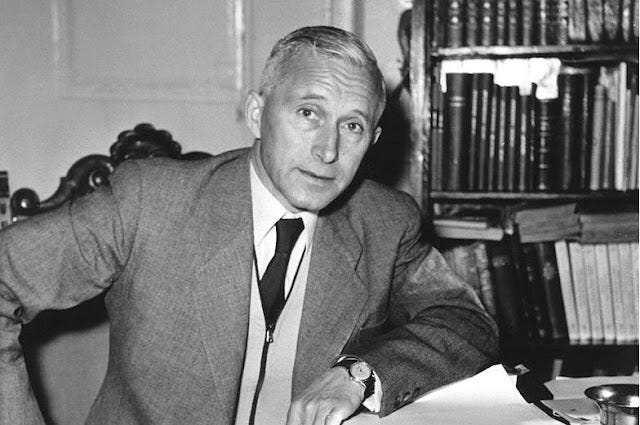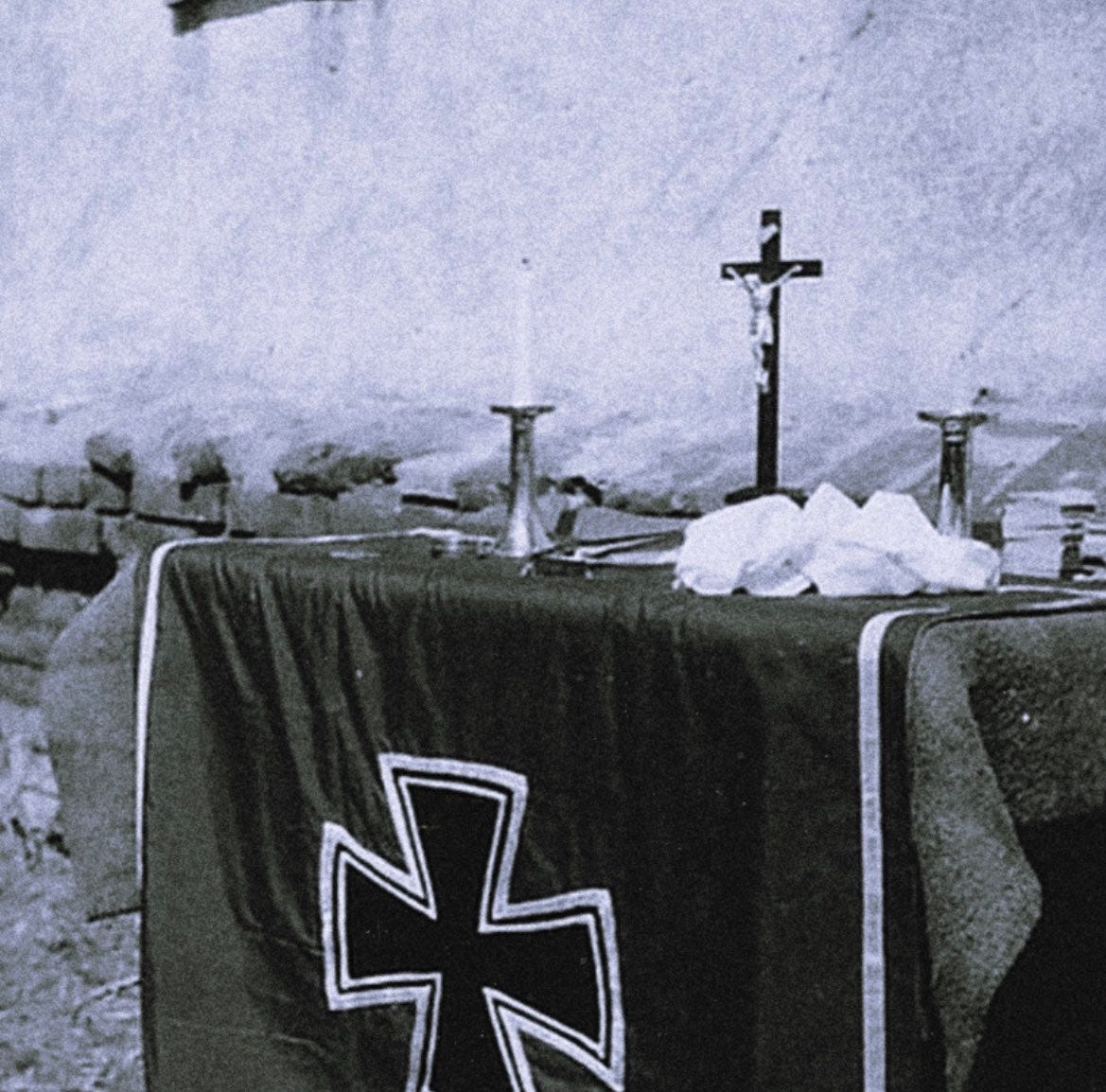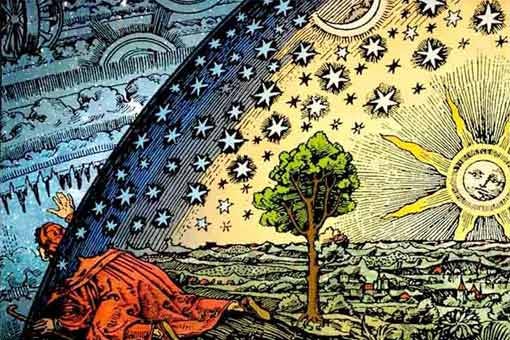Many people wonder what Jünger's conversion to Catholicism at the end of his life means. My hypothesis is that this final act is the crown of arch of Jünger's thought: His conversion is the final revelation of the meaning of his thought.
Jünger is a Platonist. As he himself said: "I have not lived an active life, but that of a Platonist; a Platonism that consisted above all in reading the great classics and the great philosophers, and when I interfered with reality, it essentially disappointed me. And I should note that I agree with Léon Bloy, who said that in the moment of death we enter into the fabric of history. And what was the fabric of history? Not time, but the supratemporal. You can find something similar in Thomas Aquinas." We know how reactionary Catholic thinkers such as Charles Péguy, Maurice Barrès and Charles Maurras greatly influenced the adolescent Jünger (A Dubious Past: Ernst Jünger and the Politics of Literature after Nazism, p. 29).
Jünger's Platonism is clear in his book The Worker, where Jünger says: "By ‘form’ we indicate a supreme meaning-giving reality. Appearances are important as symbols, representatives, imprints of this reality. The form is a whole which includes more than the sum of its parts. We call this ‘more’ totality." Also: "The “seeing” of forms allows the revision of a world in which the spirit has become selfgoverning and self-serving through a uniform being."
Here we see clearly how Jünger's thought touches on the classical dimension of Plato's and Aristotle's thought, where Form is the supreme principle of intelligibility. Hence Jünger's discomfort with the myths inherent to Nietzsche's thought, such as "Will to Power" and "Eternal Return". Jünger seems to start from Nietzsche's thought, as well as Schopenhauer's, as a point of reflection where the diagnosis of the decline of the modern world appears clearly. But Jünger correctly intuits that Nietzsche's solution of a Lebensphilosophie is just another form of sophisticated modern nihilism.
Therefore, Jünger's thought, and life, has always been strained by the presence of an eternity that is not the dizzying circle of a cosmos eternally collapsing within itself, but the brutal intrusion of the sacred as man's natural home. In other words, Jünger did not convert at the end of his life, he simply practiced a silent Catholicism throughout his life, simply confirmed by the final act of his official conversion.
Jünger and Astrological Symbolism
I know that many consider astrology to be a "girl thing" with no relevance in a modern world with space travel and AI. But such a view is wrong. Astrology is behind complex cosmologies as well as megalithic constructions of our past that even today our engineers cannot replicate. But here I would like to present Ernst Jünger's reflections on astrology and its relationship with modern measurable time.
In his book An der Zeitmauer (At the Wall of Time) Jünger contrasts the notion of time behind astrology with the modern, scientific notion of time. Time seen from a secular perspective (profane, to use Mircea Eliade's term) is a succession of indifferent units towards the future. In such temporal movement, events appear marked by a successive rhythm devoid of qualitative differences, like the progression of hours on a clock. Within astrological time (or sacred time, repeating Eliade's analogy), we see the movement of time expressing a regularity tied to a cosmic pulse that refers to the qualitative differentiation inherent to distinct cosmic cycles and to the dimension of how such cycles impact the individual's personal destiny.
We thus see that the life of the modern individual is marked by an existential exhaustion of a temporal unfolding in which his personal history is indifferent to that of other individuals. Everyone moves toward a future in which their biographies have no qualitative difference in relation to one another. There is no destiny, heroes, wise men, poets, tyrants or liberators - time is the movement of a radically egalitarian human existence. We have the opposite extreme with astrological time. In it, we see the mark of destiny imprint its differentiating mark on each person's life. The cosmos is not a space where an indifferent temporality embraces everyone equally, but the symbiosis between the sky and the human soul united through a destiny imprinted in the very fabric of the starry sky. In other words, astrological cosmology is radically anti-egalitarian and hierarchical. There is the destiny of the hero who founds a state; as well as the destiny of the nameless slave who falls while building a monument to his pharaoh and is buried in an unmarked grave. And all of this is inscribed in the celestial book.
This is why Jünger saw in the astrological resurgence of the second half of the 20th century an important inflection against liberal individualism in the name of an individualism that respects the dignity of a unique destiny: "Its significance lies in the fact that here, at first in a veiled and ambiguous form, a force begins to awaken that opposes the Leviathan and has its origins from very different depths than liberal individualism." (At the Wall of Time)
Here we are not interested in taking a position regarding the scientific objectivity of astrology in relation to modern experimental sciences. What interests us is that the idea that human destiny is marked by a radically anti-egalitarian and aristocratic dimension, as we see in the astrological worldview, will always be a barrier against the egalitarian leveling of the modern democratic world. So when a pretty girl asks your sign, don't be rude and arrogant, but join the conversation and have fun.





